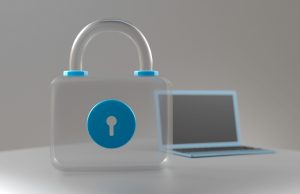Using secure passwords help protect important business information. Your data is valuable and a target for cyber criminals. It is essential you protect your business and this simple guide will show you how and why you should implement this.
Here are 5 easy ways to correctly implement passwords to protect your business data:
1. Activate the password protection setting
There are several layers of password protection available. These include screen locking and PIN codes, face or fingerprint ID. Your business should not have any devices that can you access without the need for some sort of password or verification. Most modern devices have encryption built in, but encryption may still need to be turned on and configured, so check you have set it up.
2. Multi-level verification
Use a second level of security, MFA (multi-factor authentication) provides that. On top of a password, you get a code sent to your phone as a text message that is required to access your data or file. So should anyone find out a password or it is easily guessed, it doesn’t mean they can automatically access a device.
3. Don’t be predictable
As part of your IT policy, offer guidance to staff for setting passwords that are more difficult to crack. Avoid defaulting to the same one or two passwords for ease of remembering. The NCSC has some useful advice on how to choose a non-predictable password.
4. Use a password manager so you don’t have to remember them all!
Apps such as PassPortal can manage and store all your passwords safely and securely. Accessed by a master password, this is obviously the one to make sure that it is not predictable or previously well used. This kind of app will use MFA and help generate very complex passwords, however it will mean you don’t have to remember lot of different passwords.
5. Change up the default passwords
There might be a default password on your device put there by the manufacturer. This should be replaced straight away, especially before the device goes to one of your employees. As part of your IT policy, you can put in place a reminder to routinely check devices for default passwords that have been left unchanged, this includes printers, routers, wifi and CCTV devices. They often get forgotten.
Using secure passwords is just one part of ensuring that your business is cyber secure. Most businesses, large or small, will be targeted at some point by cyber criminals. So its best to be proactive rather than reactive when it comes to cyber security within a business.
A good starting point to ensure your business is cyber secure would be to conduct a full cyber security health check across an IT network and all of its devices. Using a specialised business IT support company that can deploy cyber security measures and help train your staff would ensure you mitigate your cyber risks.
















